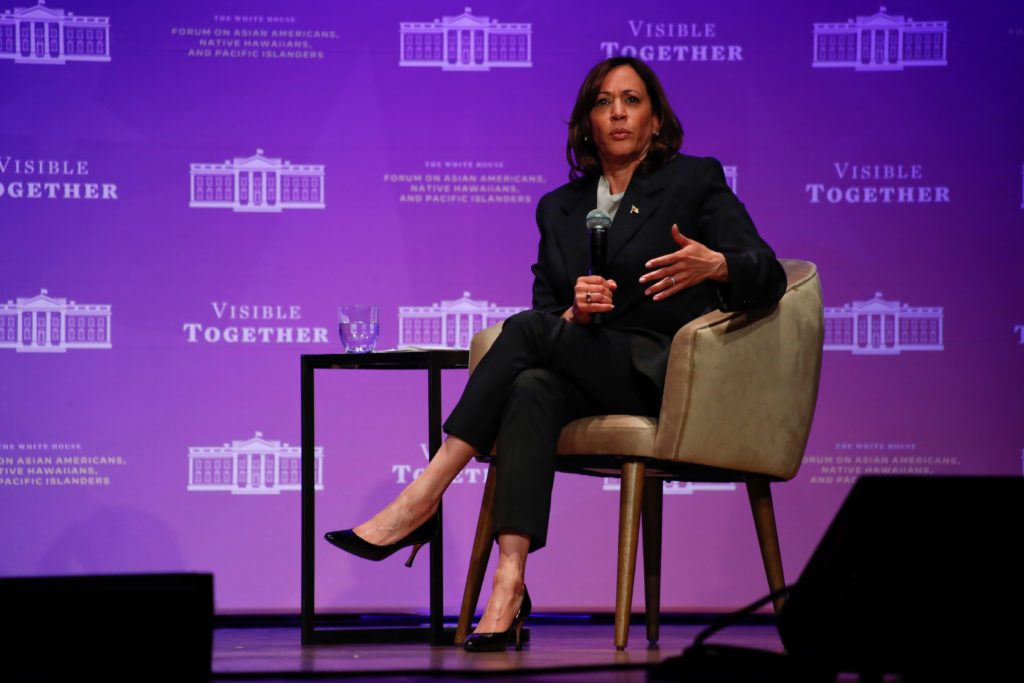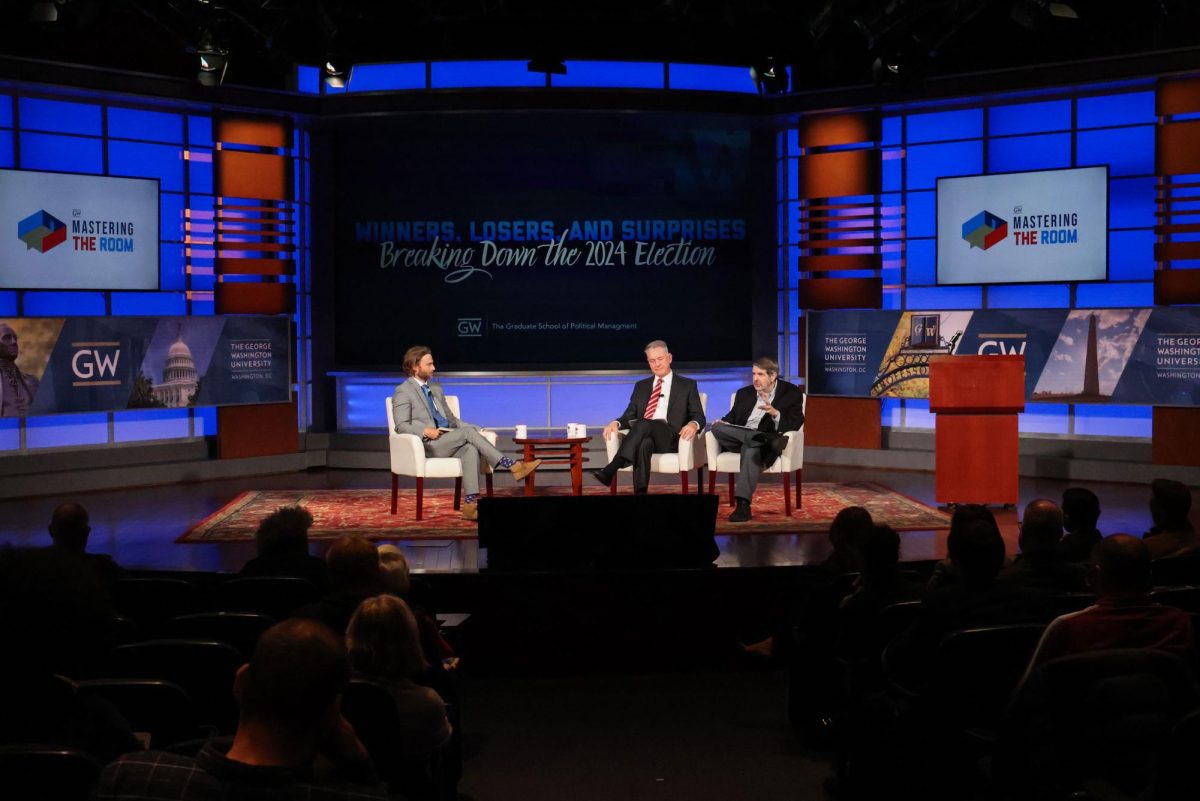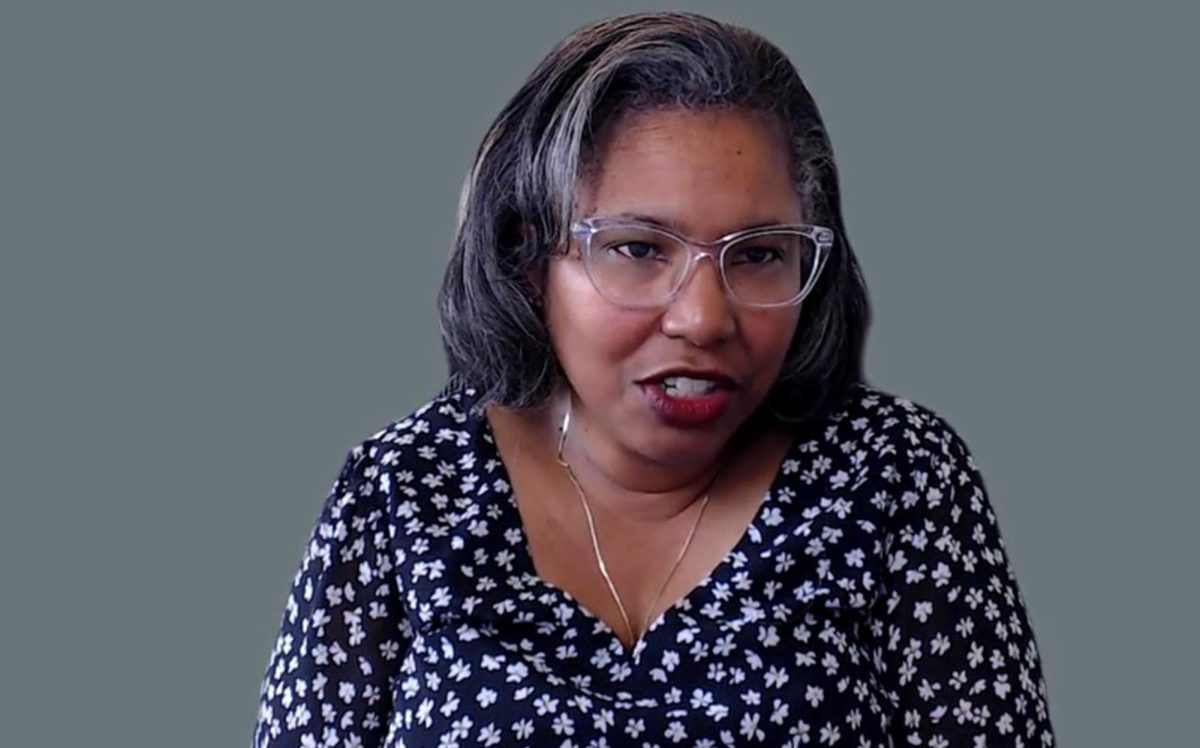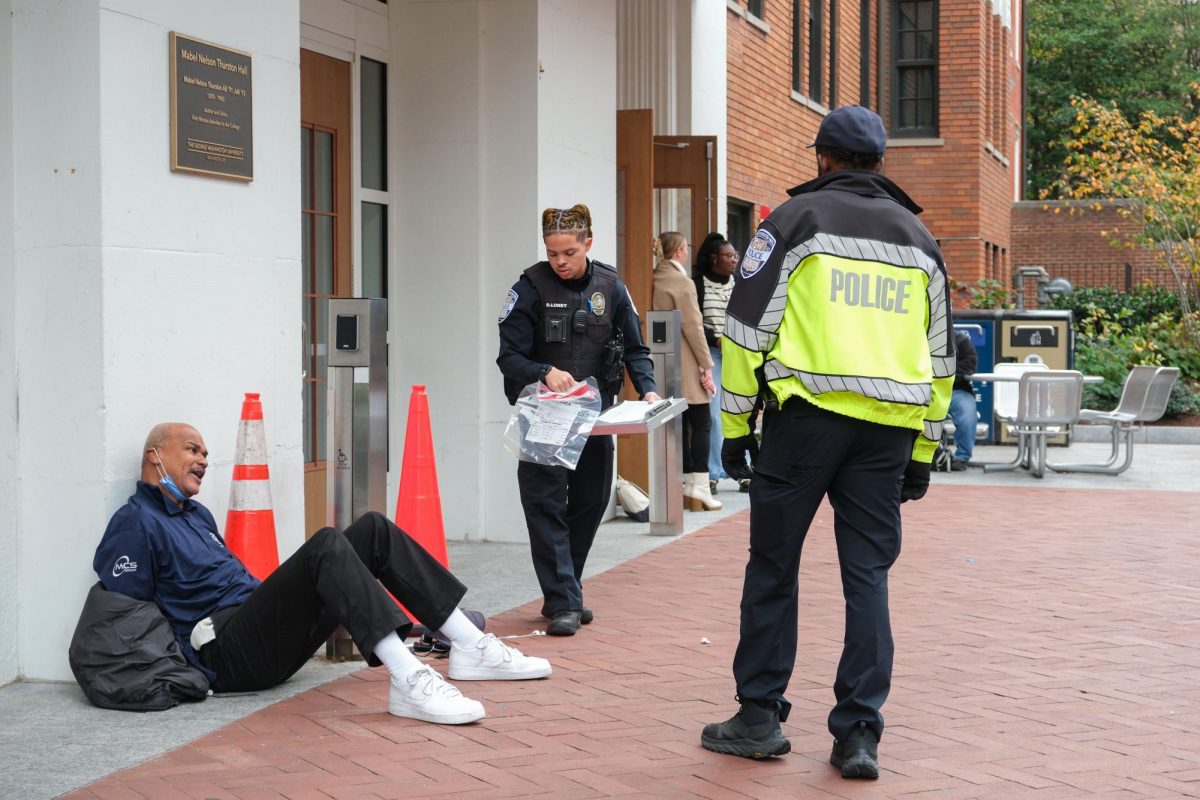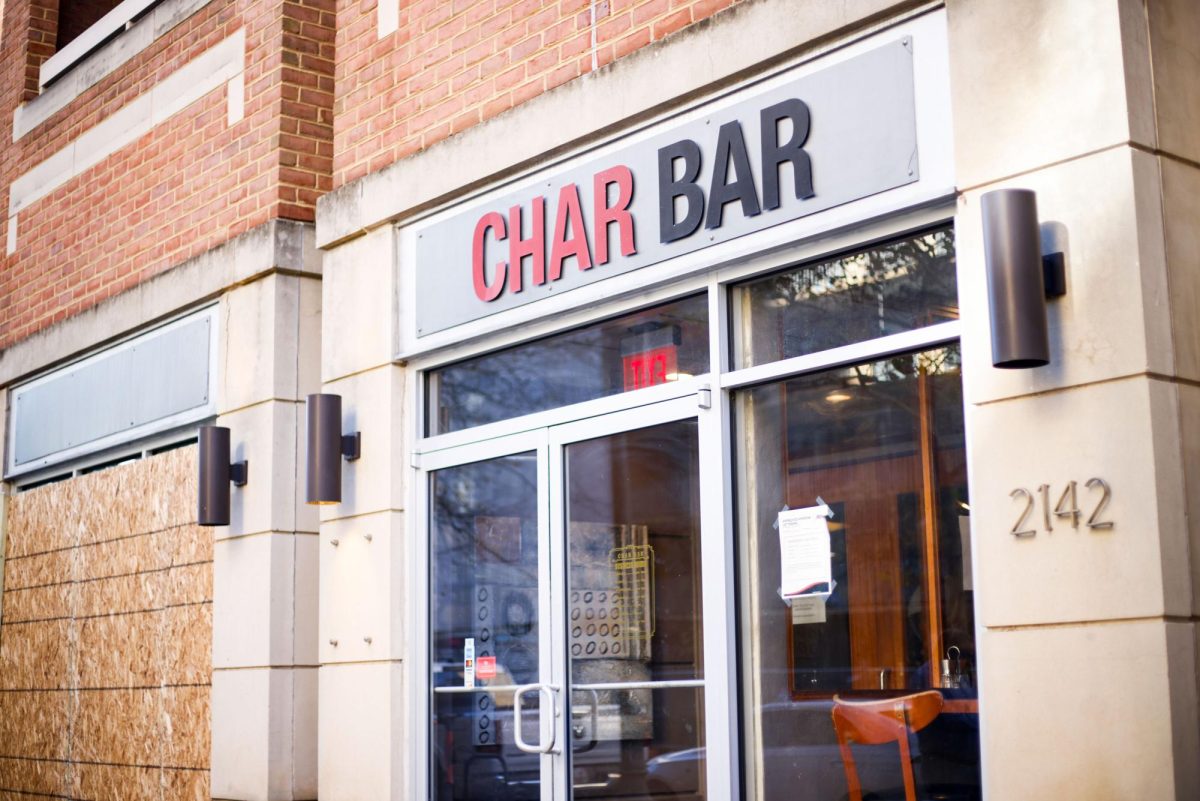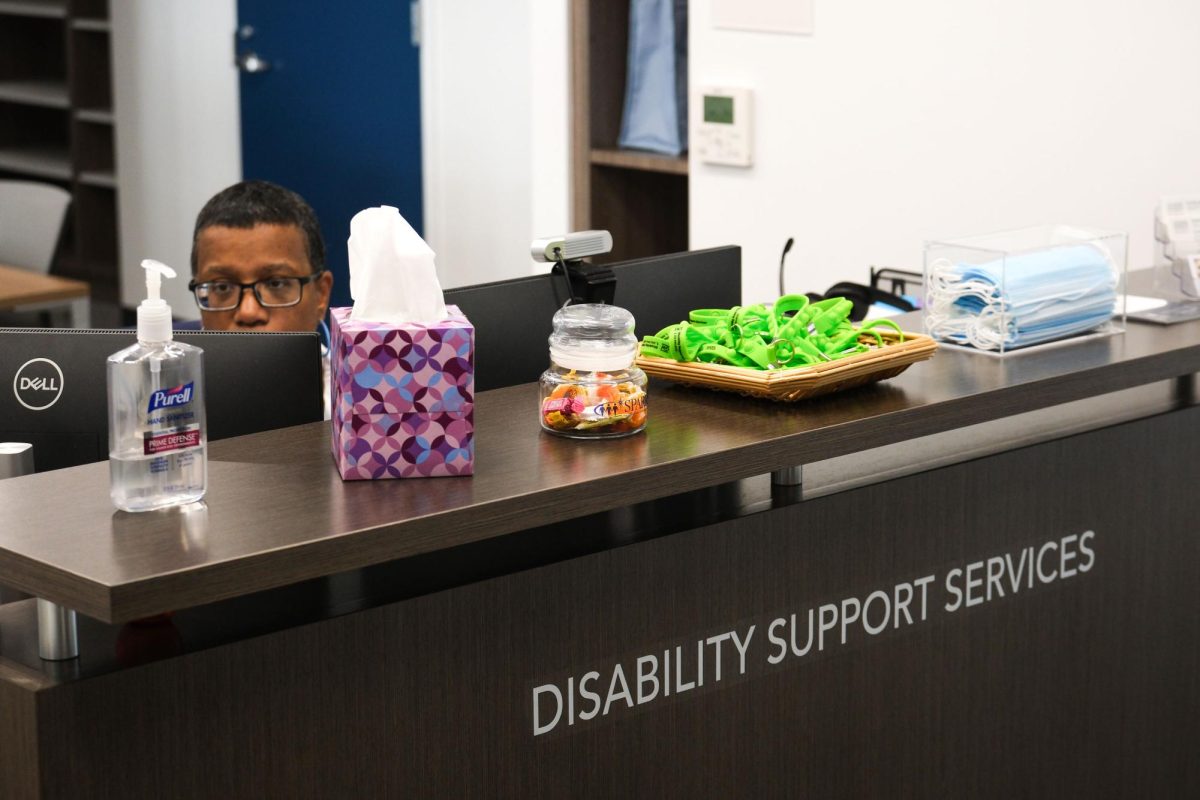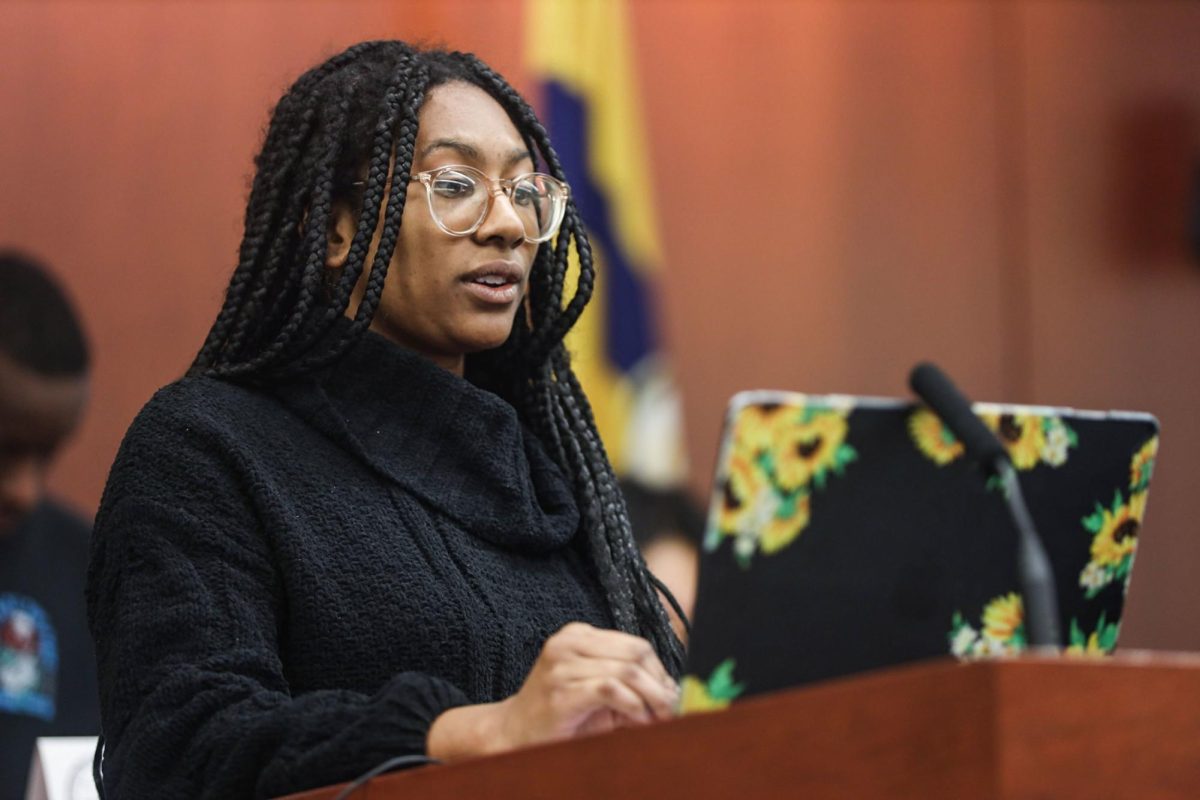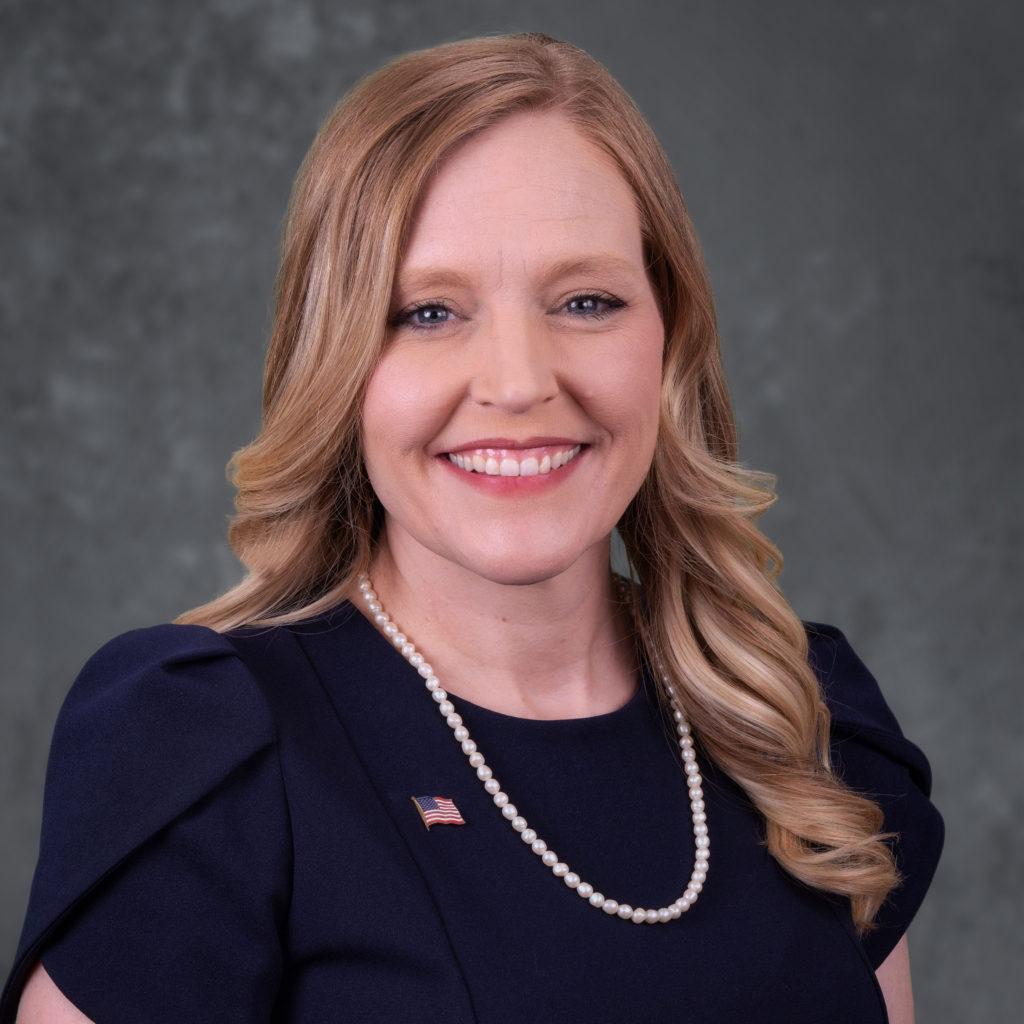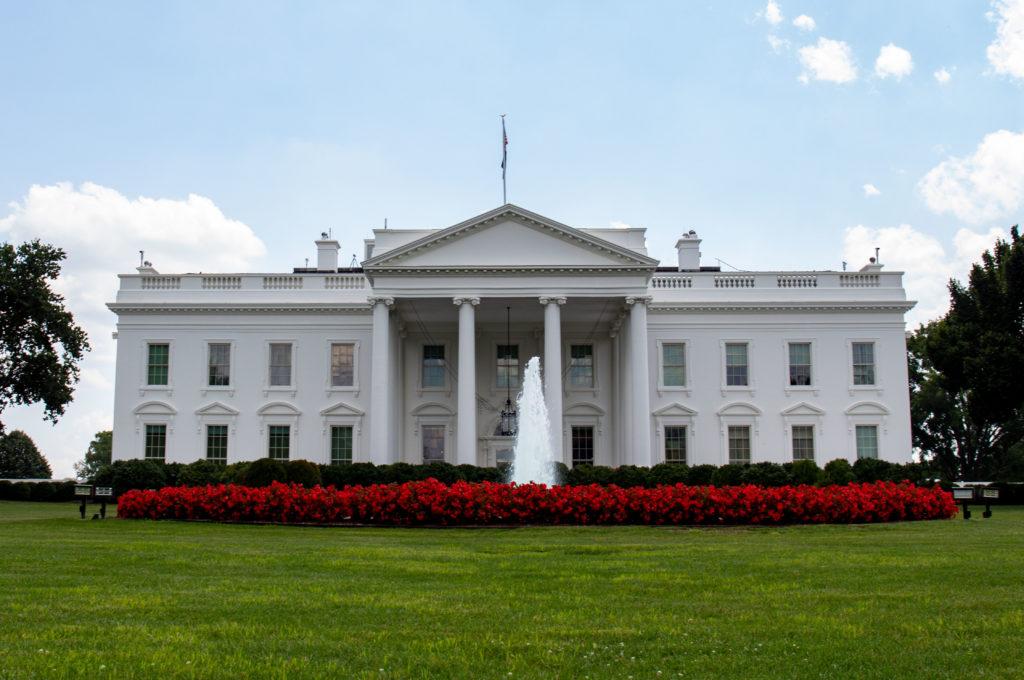Updated: Monday, May 8, 2023, at 3:46 p.m.
Government officials, artists and media professionals from the Asian American, Native Hawaiian and Pacific Islander community celebrated the beginning of AANHPI Heritage Month in a White House forum Wednesday.
The daylong event featured panels with industry experts and politicians at Lisner Auditorium, including a discussion with Vice President Kamala Harris, who encouraged aspiring AANHPI leaders to represent their communities in government. The forum, themed “Visible Together,” was hosted by the White House and officials from the White House Initiative on AANHPI and drew more than 1,300 attendees.
The event served as part of the initiative announced in January, which aims to provide a “whole-of-government agenda” that advances equity, justice and opportunity for AANHPI communities. TV host Jeannie Mai Jenkins and White House Senior Advisor for Public Engagement Philip Kim emceed the panels, which were interspersed with performances from AANHPI artists.
Jenkins and Kim introduced interim University President Mark Wrighton, who said he hopes the forum provides people with more resources to create a positive impact on communities internationally and locally. U.S. Department of Health and Human Services Secretary Xavier Becerra, U.S. Trade Representative Katherine Tai and U.S. Senator Mazie Hirono (D-HI) also delivered opening remarks.
Here are some of the forum’s highlights:
Vice President Harris talks family background, White House action to address hate crimes
Harris discussed her Indian-American heritage and actions the Biden administration has taken to protect AANHPI communities from gun violence in a discussion moderated by Jerry Won, CEO of Just Like Media and Poorna Jagannatha, an actress who stars in Netflix’s “Never Have I Ever” TV show.
Harris said her mother, who came to the United States in 1959 in one of the first waves of Indian-American immigrants, was “so comfortable and clear” about where she came from and who she was. She said she remembers her grandfather, who was an Indian government official during the country’s independence movement, talking about “fighting for democracy” and equality when she was a child.
Harris said being raised in a family and community where there was a “real fight” to uphold the importance of independence and identity is part of her “story.”
“My mother would often say, ‘You don’t let people tell you who you are, you tell them who you are,’” Harris said.
Harris said there has been a “horrendous rise” in hate crimes toward Asian communities and that the Biden administration has passed “smart” gun safety legislation when asked about what the administration has done to protect AANHPI communities from gun violence. She said the administration has “more to do” and advocated for a national assault weapons ban, background checks and red-flag laws, which allow courts to remove weapons from people deemed a threat to themselves or others.
“We should not be seduced into perpetuating this false choice that suggests you’re either in favor of the Second Amendment or you want reasonable gun safety laws,” Harris said. “I support the Second Amendment.”
There were 746 attacks targeting people of Asian descent in 2021, up approximately 200 percent from 2020 and the most ever recorded in a single year, according to data from the Federal Bureau of Investigation updated in March. President Joe Biden issued an executive order aiming to increase background checks and promote better firearm storage on March 14 and signed a bill in June 2022 that gives incentives to states that pass red-flag laws.
Harris said younger generations of immigrant families share a growing recognition that their representation in government matters. She said aspiring AANHPI leaders may find they are the only one who looks a certain way or has certain lived experiences when they walk into a room, and that in those situations, they are representing the voices of “so many people who are proud that you’re in that room.”
“We are all in that room with you,” Harris said.
AANHPI creatives talk artistic achievement, gender identity
Poet Rupi Kaur, actor Daniel Dae Kim, producer and transgender rights advocate Geena Rocero and CEO of Hawaiian creative firm Gravitas Pasifika Aaron Salā discussed AANHPI art and identity with moderator Bing Chen, CEO of the Asian creative nonprofit Gold House.
Kaur said people should continue to “celebrate” works by AANHPI authors to prevent school officials and politicians from silencing their voices with recent book bans. 30 percent of books banned from January to December 2022 were about race, racism, or feature characters of color. Kaur’s “Milk and Honey” was tied with “The Bluest Eye” and “This Book Is Gay” as the fifth-most banned book during that period, according to PEN America.
Kaur said she was laughed at when she told “industry gatekeepers” she wanted to publish a book of poetry because they believed there was no market for her pieces.
“They couldn’t have imagined that a brown girl would write a book that would one day outsell Homer’s ‘The Odyssey’ and become the highest-selling book of poetry of all time,” Kaur said.
Kim, who starred in “Lost,” said it is “really important” for people outside the AANHPI community to continue their support of Asian-American art, citing the recent success of award-winning international movies like “Parasite,” a South Korean film, and “Everything Everywhere All At Once,” a film centered around Chinese-American characters and the most awarded movie in history.
“We’re no longer saying, wow, we support this because it’s an Asian-American film, we’re saying we support it because it’s a f*cking amazing film.”
Rocero, a transgender Filipina, said cisgender people have told stories about her culture for “so long” and that gender fluidity is in the “DNA” of AANHPI culture, pointing to Filipino “babaylan” spiritual leaders who practiced gender-crossing, the Indian “hijra” community of intersex and transgender people and nonbinary communities like American Samoa’s “faʻafafine” and Hawaii’s “māhū.”
“We need to honor that, particularly as we’re centering stories,” Rocero said.
Media professionals, activists discuss AANHPI empowerment
DIVE Studios Creative Director Eric Nam, Teen Vogue Editor In Chief Versha Sharma, executive director of the LA-based social justice organization Empowering Pacific Islander Communities Estella Owoimaha-Church and Asian Americans Advancing Justice President John Yang discussed the theme of the panel, “The Power of the AA and NHPI Voice,” with moderator Lisa Ling, the host and executive producer of CNN’s “This Is Life.”
Nam said he and the entire AANHPI community are “still developing” their voice and said AANHPI representation in media has helped amplify their experiences in society.
“For a long time, we were told we don’t have space in the spaces that we exist,” Nam said. “In recent years, we’re seeing ourselves represented in media, in so many incredible places and we’re just now starting to get our footing and getting comfortable with expressing ourselves to our fullest ability.”
Sharma said she felt “othered” growing up in central Louisiana and described Ling as a role model and trailblazer for Asian-American representation in media. She said she is “very proud” to have put four South Asian people on the cover of Teen Vogue as editor-in-chief.
Yang said all of the event’s panelists want to tell the story of who they are as AANHPI people, which serves as the “common link” between speakers who come from different backgrounds. He said AANHPI people must participate in politics to protect their “vulnerable” communities.
“Democracy is not a spectator sport,” Yang said. “It is a sport we must all participate in.”
This post has been updated to reflect the following:
The Hatchet incorrectly reported that Philip Kim is the White House liaison at AmeriCorps. Kim is the White House senior advisor for public engagement. We regret this error.


